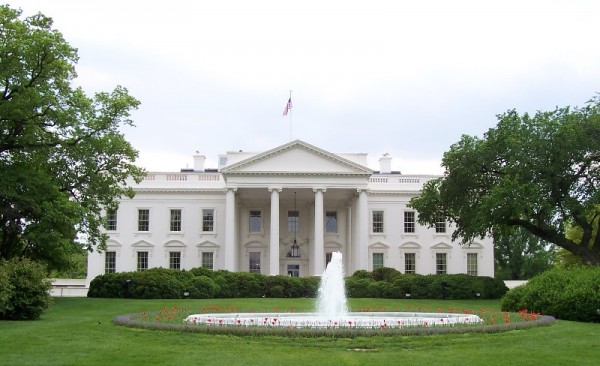13 October 2011
Science press decries elusive federal science experts, applauds better data access
Posted by kramsayer

Journalists rated the Obama administration on transparency and access to information in a recent panel at the National Press Club. (Credit: Ed Brown, via Wikimedia Commons
Federal scientists should be more accessible to journalists, reporters said last week at a National Press Club event in Washington, D.C. The panel discussion “Access Denied: Science News and Government Transparency” addressed whether or not the Obama administration is living up to its promise to make science more transparent and accessible. And several journalists on the panel said there is still a ways to go.
Data access alone is not enough, several panelists said. Felice Freyer, journalist and director for the Association of Health Care Journalists, stressed the importance of being able to speak firsthand with a federal scientific expert. “[Press officers] need to understand the importance of a conversation,” she said.
In a survey on government access and transparency that was conducted by Columbia Journalism Review and ProPublica, the one area that the Obama administration has seen marked improvement was in the provision of data. Curtis Brainard, science editor for the Review, said at the panel that this was largely due to the Open Government Directive and sites like data.gov.
But that isn’t enough, he added. “Data doesn’t speak for itself … you want to talk to people who have collected this data, who are responsible for analyzing data, and implementing it in some way,” he said.
Reporters often are not able to have the kind of in-depth interviews they want with federal scientists, Freyer said. They can be hampered by a lack of response from the press office, or because their interview requests are sent up a long, time-consuming chain of command.
Nancy Shute, president of the National Association of Science Writers, said that this delay can impede a journalist’s ability to cover a story – even one free of controversial policy implications.
“You call a scientist, they say you have to go and get clearance through the main office,” Shute said. “Days, weeks go by, nothing happens and there goes your story.”
Media relations policies can vary between different federal agencies, several members of the panel noted. One agency that drew praise for its handling of press was the U.S. Geological Survey (USGS). “I cannot say enough about USGS in terms of media callbacks and media accessibility,” said moderator Seth Borenstein, science reporter for the Associated Press.
How well agencies use social media also varies considerably. Joseph Davis, editor of the TipSheet and WatchDog news alerts from the Society of Environmental Journalists and a member of its Freedom of Information Task Force, said that the Environmental Protection Agency was one of the agencies using social media well.
The journalists gave some tips for both press information officers and fellow journalists seeking access to federal scientists. Press officers should respond to journalists quickly, said Borenstein, and if they can’t provide information they need to give an explanation of why. When press officers do come through with what journalists request, give them some credit, added Davis. Journalists should acknowledge government transparency with positive recognition.
– Allie Wilkinson, AGU science writing intern










 The Plainspoken Scientist is the science communication blog of AGU’s Sharing Science program. With this blog, we wish to showcase creative and effective science communication via multiple mediums and modes.
The Plainspoken Scientist is the science communication blog of AGU’s Sharing Science program. With this blog, we wish to showcase creative and effective science communication via multiple mediums and modes.